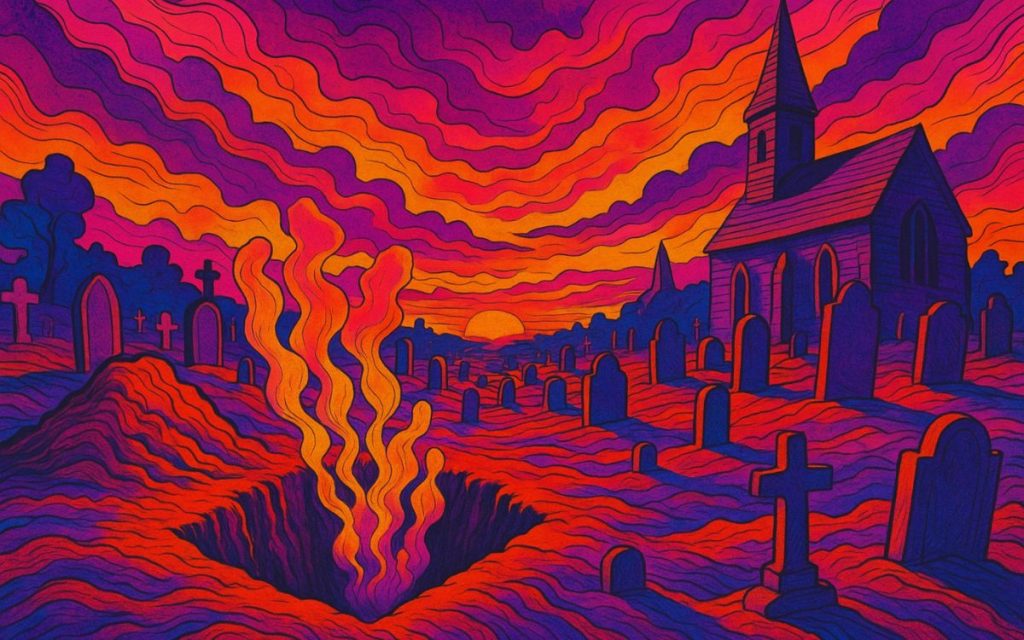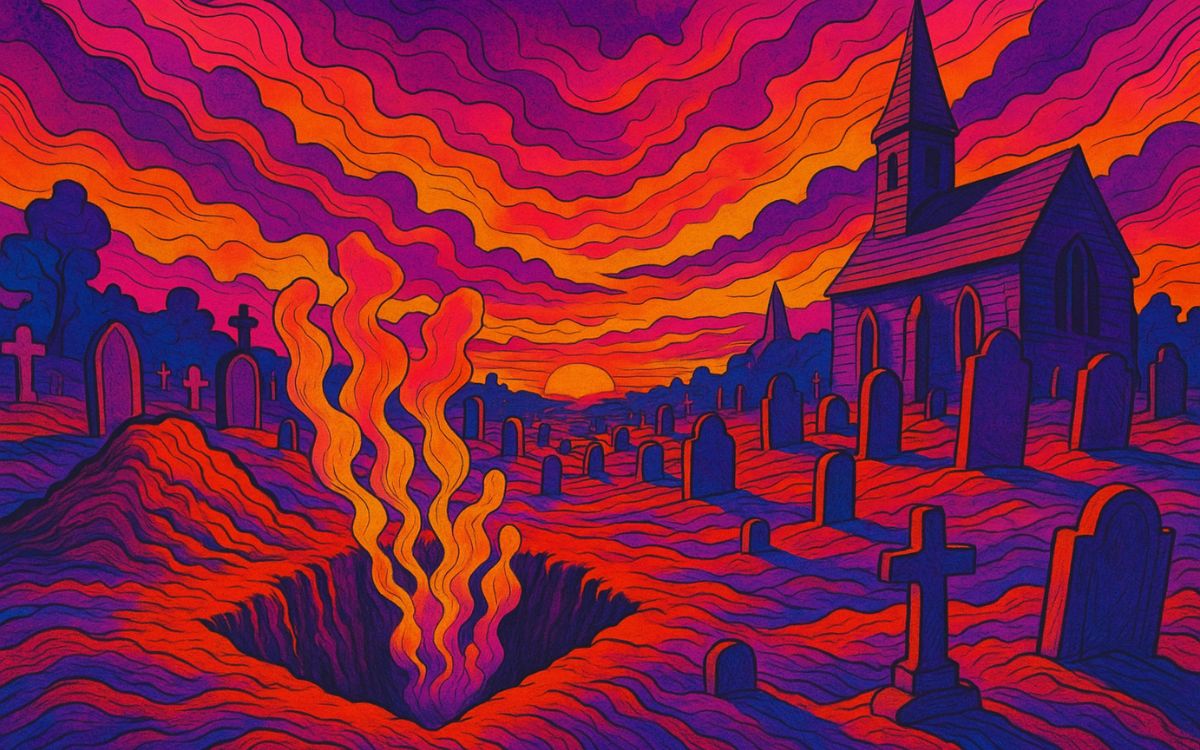Robert Blair’s The Grave is a darkly humorous meditation on death that asks the questions we all secretly want answered, writes WILLIAM BOVE
Tell us, ye dead—I will none of you in pity.
To those you left behind, disclose the secret.
O! That some courteous ghost would blab it out—
What ’tis you are, and we must shortly be.
I’ve heard that souls departed have sometimes
Forewarn’d men of their death. ’Twas kindly done
To knock and give the alarm. But what means
This stinted charity? ’Tis but lame kindness
That does its work by halves. Why might you not
Tell us what ’tis to die?
This haunting section of The Grave is written with wit and rich expression by Robert Blair, the second of our featured Graveyard Poets.
Blair was a Scottish poet who lived from 17 April 1699 to 4 February 1746. In this piece, he invites us into his contemplations on death with eerie finesse—a tone he sustains throughout the full poem, using dark humour to probe life’s ultimate mystery.
In his writing, there is a palpable sense of fleeting joy. He presents a kind of mocking from the dead, aimed at the living. Take, for example, the lines:
To those you left behind disclose the secret
O! That some courteous ghost would blab it out.
Here, Blair imagines a ghost as a gossip, someone who might casually reveal the secrets of the afterlife. Rather than offering only solemn reflection, he injects a playfulness into death.

This does not suggest a lack of respect for life, but rather a desire to comfort. By making light of death and the dead, Blair creates a sense of calm. The fear of death is diffused, encouraging readers to view dying as a natural transition.
By easing our anxieties, Blair seems to suggest that we might embrace mortality more openly. The more we humanise death, the less power it holds over us.
As the poem progresses, Blair deepens the mood while retaining his signature dark humour. The tone becomes more serious—graver, if you will—but there remains a wry glint beneath the surface.
Graveyard humour is, after all, a rich and irresistible pleasure. And Blair is clearly attuned to this macabre joy.
Consider the following lines:
I’ve heard that souls departed have sometimes
Forewarn’d men of their death. ’Twas kindly done
To knock and give the alarm. But what means
This stinted charity? ’Tis but lame kindness
That does its work by halves. Why might you not
Tell us what ’tis to die?
There is something theatrically sinister in these lines. One could easily imagine Vincent Price reciting them with delicious menace, like a chilling passage from Edgar Allan Poe.
Blair toys again with the idea of ghosts showing courtesy by warning the living. But this gesture is hollow. The poet accuses the dead of “stinted charity”—offering only partial truths.
If they are kind enough to knock, why not go further and explain what dying actually is?
The final line is both plaintive and ironic. The poet begs for understanding but seems to know he will never receive it.
This plea—“Tell us what ’tis to die”—rings with frustration. Behind it is the deep human urge to understand what lies beyond.
Blair’s work captures this desire, echoing the questions we all share. What happens after death? What’s waiting beyond the veil?
Yet one must wonder—would we really want to know, even if we could?
Have you read The Grave by Robert Blair? What do you think lies beyond death? Share your thoughts in the comments below!



